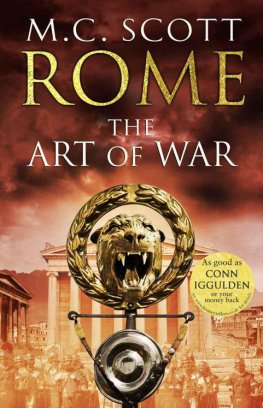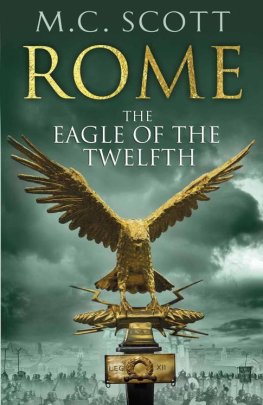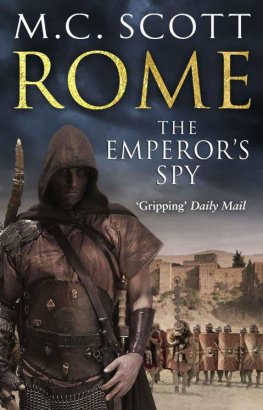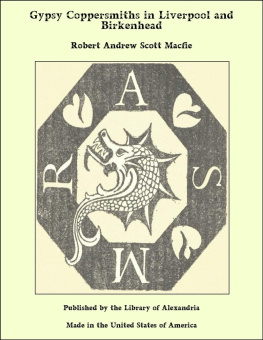M. Scott - The Art of War
Here you can read online M. Scott - The Art of War full text of the book (entire story) in english for free. Download pdf and epub, get meaning, cover and reviews about this ebook. genre: Adventure. Description of the work, (preface) as well as reviews are available. Best literature library LitArk.com created for fans of good reading and offers a wide selection of genres:
Romance novel
Science fiction
Adventure
Detective
Science
History
Home and family
Prose
Art
Politics
Computer
Non-fiction
Religion
Business
Children
Humor
Choose a favorite category and find really read worthwhile books. Enjoy immersion in the world of imagination, feel the emotions of the characters or learn something new for yourself, make an fascinating discovery.
The Art of War: summary, description and annotation
We offer to read an annotation, description, summary or preface (depends on what the author of the book "The Art of War" wrote himself). If you haven't found the necessary information about the book — write in the comments, we will try to find it.
The Art of War — read online for free the complete book (whole text) full work
Below is the text of the book, divided by pages. System saving the place of the last page read, allows you to conveniently read the book "The Art of War" online for free, without having to search again every time where you left off. Put a bookmark, and you can go to the page where you finished reading at any time.
Font size:
Interval:
Bookmark:
M. C. Scott
The Art of War
I
Chapter 1
Judaea, June, AD 69
Titus Flavious Vespasianus Vespasian
It began, as it ended, with the scent of wild strawberries. Sharp, sweet, erotic beyond words, it was the scent of Caenis, of her skin, her hair, of the flat channel between her breasts and the ambrosia-sweat that dripped from them on to my face.
It surrounded me, carried me far from myself. I swept my thumb up and round and brought it to my lips. My eyes sought hers to share my tasting of her. She was kneeling over my hips, drawing me inside with the chaotic abandon that had never failed to startle me when the rest of her life was so ordered.
She smiled and was fierce: a tigress; she was wild: a harpy; she was perfect: Athena, or Artemis, or the bright god-woman of the moon who spins her foam down to seduce poor men who cannot stand against her.
I couldnt keep still any longer. However hard I tried, I couldnt keep my eyes open, either, to see if she had met her climax as I met mine. Later, of course, I would find out. Later, I would attend to her need. Later, when I could bear to My love She leaned forward on to me. Her breasts were heavy on my chest. Her lips kissed away the sweat from the sides of my eyes.
She was resting on her small, sharp elbows and her hair fell on my face, tickling my cheeks. She swept it up, and hooked it over her ear. Must you go?
Lost in the undertow, it took me a moment to understand her question. I had to drag back memories of who and what and where.
Slowly we were in Greece, on the island of Kos, in exile for the sin of sleeping under the spell of a song.
The sleep was mine. The song had been the emperors and Nero was not kind to men who offended him. Only a year before, Corbulo had been forced to suicide for no greater crime than being a good general, loved by his legions; I was only alive because I had no money and posed no threat and had not, until that point, mortally offended the emperor.
And so we had run away to Greece together, Caenis and I, and through the long winter we had awaited the messenger who would order me to fall on my sword and surrender my pitiful estate to the crown.
But then Neros messenger finally came, and his order was not the one we had so feared.
Far from being required to fall on my sword, I, Vespasian, had been given command of the Judaean legions, with a remit to subdue the insurgents who had taken Jerusalem and stolen the eagle of the XIIth legion. If I failed, of course I would have to die, and even if I succeeded there was every chance that I might still face Corbulos fate, but for now, I was safe.
Duty said I must go, but, more, I wanted to: war was my lifeblood, the hard matter of my bones, the joy of my ageing days, and no amount of love could hold me back from it. I tried to speak, to tell her so softly, and could not.
Nearby, a man groaned. I am shamed to say that it took me some time to realize that the voice was my own, and that it bounced back to me soft with the echoes of goatskin, not crisp from a plaster wall; that the scents around me were not of strawberries at all, but the autumnal fragrances of the legionary encampment: old fire smoke, mens sweat, honed iron and rusting armour.
Everything was rusted here, in Judaea, because I was here in my tent, not there on Kos, and here was a mile south of the Syrian border, and more than a year had passed since I had last lain with Caenis.
I was a general in command of Neros armies: three legions were camped with me and two more with Mucianus half a days march away.
I had been wounded twice in the past year. I had led the charge from the front more times than I chose to remember and I had won back a province as I had been ordered to do; all but Jerusalem was once again under Roman rule and death had not taken me yet.
I tried to open my eyes, and failed, and in the moments half-held breath between sleep and true awakening I knew two things: that I was alone in my bed my act of emission had been solitary and wasted but I was not alone in my sleeping quarters. An intruder was in there with me and he had not come with kindness in his heart.
I was not armed, that was the hard part. My sword was on my kit box at the far side of the tent, and might as well have been in Greece. A knife hung from the crossed poles of my camp bed, closer, but still too far away for me to reach it without being seen to move.
Beneath the thin linen that covered me, I was naked as a child, with the stain of my own lust fresh on my loins. A shadow stood poised in the grey-milk light to my left.
What I did next was all instinct. I bunched both hands into fists, took a deep, rollicking breath, rolling a little, as a man does in disturbed sleep. For good effect, I whistled and grumbled on the exhalation.
And then I shouted.
Haaaaaaaaaa!
It was more of a scream, really. On the battlefield, I would have been ashamed of its pitch; my men knew me as their general who roared like a bull.
Here in the close confines of the tent the noise crashed around, coming from all places at once, and it was powerful enough to scare a man who was already on the edge of his fear.
I couldnt sustain it long, but it gave me time enough to hurl myself off the bed and tumble across the floor away from the deadly shadow.
I hit my head and scrabbled for my pack, which had to be close. My hands closed on cold metal: the long thin plates of the banded legionary armour that has come into use these last few years.
You have to understand that in battle I wear what my men wear, and usually I am glad of it, but this once, a generals solid breastplate would have been better. I fumbled for a weapon, but the shadow charged at me, snarling.
No!
I jerked aside, and felt a blade sting as it skittered over my ribs. I was bellowing like a bull now, no words, just a noise that might keep this hound of Hades away from my throat long enough for me to find ha! The hilt of my gladius. This, too, was what the men carried into battle, and it was perfect: short, savage, sharp enough to gut a man.
I thrust it forward, kneeling, and felt it slide across a leather jerkin, but I had already punched my left shoulder and forearm forward in a following blow. Perhaps a year ago I could not have done this, but I was battle fit by now, my body as much of a weapon as my shield. I felt muscle yield, the impact of bone, solid against me, the slide of leather. I drew my arm back for another thrust and A sudden flare of firelight, dazzlingly bright. Shapes shifted within it, and even as I wrenched my head away I felt the body beneath me flinch under a blow I had not delivered, felt hands grab past me to hold arms that were not mine, heard a voice I knew, but could not immediately place, shout, Alive! Keep him alive!
Thus, rescued, I, Titus Flavius Vespasianus, senator, second son of a tax farmer and current commander of the armies of Judaea, rolled away, and sat up.
On the far side of my tent was a flurry of contained violence, in which I took no part.
Chapter 2
Judaea, June, AD 69
Vespasian
My Lord?
I was sitting hunched on a folding camp stool in front of a brazier in the outer, more public, section of my tent.
My hands were wrapped round the old silver mug that was my grandmothers gift when I first left home. Ive had it with me on every campaign since Britain; I have it still.
Its my mirror as well as my drinking vessel. Once in a while, it shows me a handsome man, flushed with victory. That night I suppose it was morning by then a ruddy-faced farmer stared back at me with haunted eyes, cheeks too broad and chin too sharp, hair grey as a winters dawn and two fat brows creeping to kiss in the folds of a frown.
Font size:
Interval:
Bookmark:
Similar books «The Art of War»
Look at similar books to The Art of War. We have selected literature similar in name and meaning in the hope of providing readers with more options to find new, interesting, not yet read works.
Discussion, reviews of the book The Art of War and just readers' own opinions. Leave your comments, write what you think about the work, its meaning or the main characters. Specify what exactly you liked and what you didn't like, and why you think so.
















